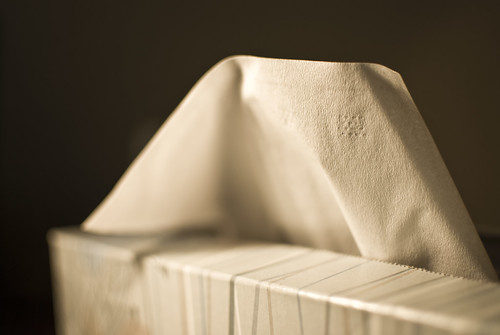Yesterday, my son and I had the most productive conversation we’ve ever had, squeezed into the ten to fifteen minutes it took us to drive from school to his social skills group meeting. It started when he said to me, “You know how things take me longer to learn and I’m sensitive because I have autism?”
So I said, expectantly, “yeeesss…?”
“Well, I think maybe Axel (not his real name) might have autism too.”
“Why is that?” I queried, naturally.
“He’s kind of slow with learning some things, and he seems pretty sensitive too. Does he have autism?”
“Well, I don’t know him or if he does. Everyone with autism is different anyway.”
“Do you think HE knows about autism?”
“Well . . . let me ask you something: did you have autism when you were in third grade?”
 |
| Creative Commons licensed by Chris Costes (SOURCE) |
“Yes. I have had autism my whole life.”
The world went slightly blurry just then, as I pulled up in the left-turn lane.
I then went on to say that maybe Axel does have autism, or maybe he doesn’t. Maybe he does and it has not been diagnosed. Maybe he has a diagnosis but only his parents know. Or maybe he and his parents know, but they’re not telling Axel’s classmates, like what we are doing right now in our family’s case.
In that moment, I was grateful we told Cameron about his diagnosis as soon as we learned it. For us, it was absolutely the right thing to do. In this moment in the car, I also chose to tell him about someone else I know who didn’t know all throughout elementary school that he has autism. He was in sixth grade when his parents finally told him. And they had the teacher help tell the kids one day when the child in question stayed home from school.
We arrived at our destination with me realizing that my helpless little baby is now a tween with his own self-directed personality with his own objectives and goals for his life.
I picked up on this conversation a little bit today on the way home from school. We were already talking about some interpersonal stuff with my boy and his current friends at school. I asked him if he thought he might ever be comfortable telling his classmates about autism and how it affects his life. Not this year, I assured him. But maybe next year in sixth grade, or perhaps the year after that.
“I don’t know. Maybe I will.”
Yeah, I’ll call that progress.
